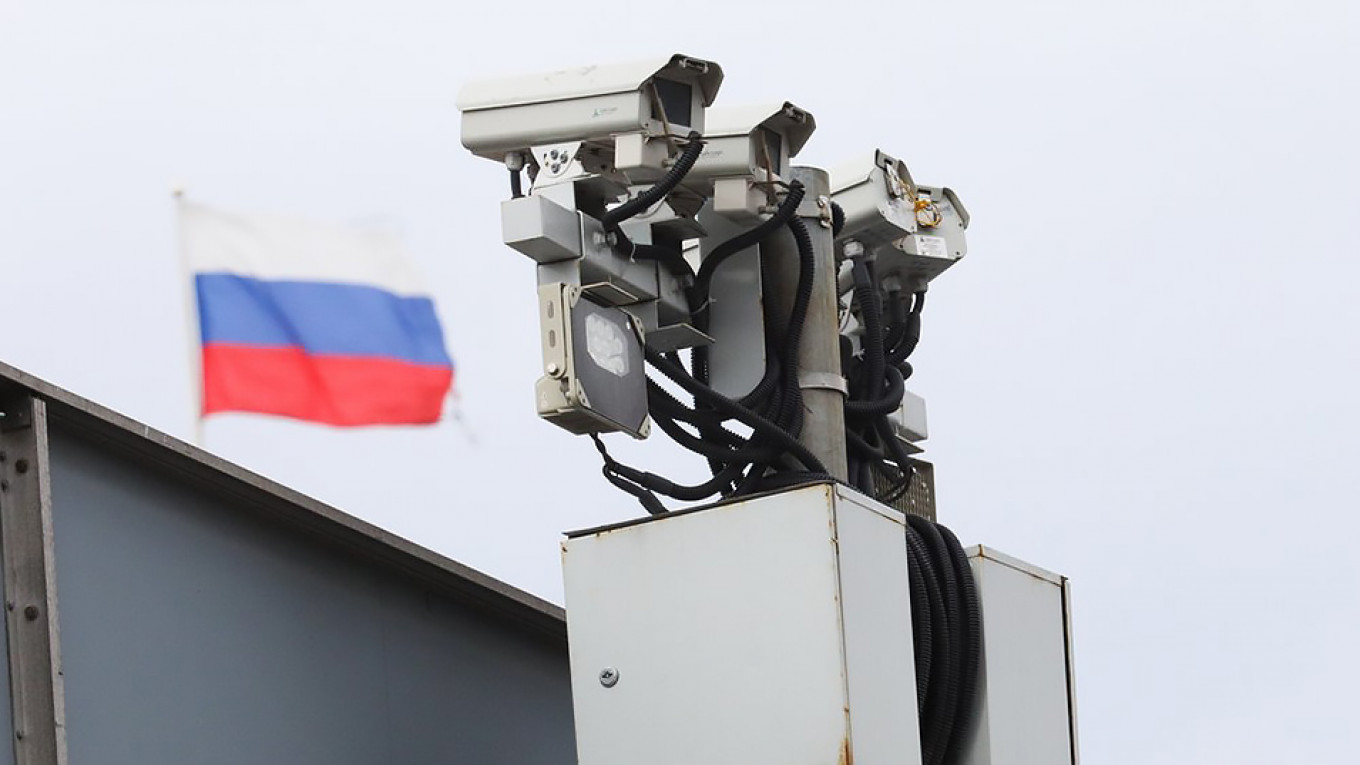
Authorities in Moscow have ordered 260 million rubles ($4 million) of facial-recognition technology for surveillance cameras to monitor protests and other mass gatherings, the Vedomosti business daily reported Friday.
Moscow claims one of the world’s largest network of 160,000 surveillance cameras, some equipped with facial-recognition technology, with plans to boost the number to 200,000 this year. Supporters of the facial recognition-equipped cameras tout their role in maintaining public safety, while critics warn of false matches and surveillance overreach.
Moscow City Hall’s IT department has placed the $4 million facial-recognition technology order with a subsidiary of tycoon Vladimir Yevtushenkov’s conglomerate AFK Sistema, Vedomosti reported, citing public procurement documents.
The Sitronics tech firm will reportedly install cameras at protest routes and live stream the demonstrations to Moscow security officials. Its representative has vowed to study potential liability for violations of the system and whether it would need to obtain permission to use people’s captured images, Vedomosti reported.
Sitronics specializes in “anti-criminal, anti-terrorist, anti-vandal” systems. The company has deployed surveillance equipment across Moscow’s schools and has worked with the city’s traffic management center and the state energy company.
Experts told Vedomosti that Russian law does not regulate non-consensual surveillance imagery analysis, but an anti-terrorism loophole allows pervasive exceptions. The dragnet could inadvertently place random passersby in a database of protesters, warned Agora human rights group lawyer Stanislav Seleznyov.
Sitronics’ facial-recognition technology will be introduced once the surveillance system is permanently deployed, according to the IT department deputy chief Alexander Gorbatko.
An unnamed source close to one of Russia’s image-recognition system developers described Moscow’s surveillance system as “chaotic” to Vedomosti.
“The more security control there is at mass events, the more people will attend them,” Sergei Kapkov, a former culture chief at City Hall, was quoted as saying in defense of facial recognition.
